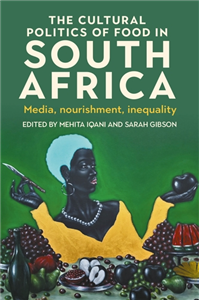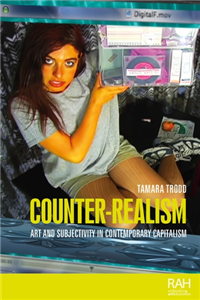Your Search Results
-
Promoted Content
-
Promoted ContentHumanities & Social SciencesSeptember 2024
Settlers at the end of empire
Race and the politics of migration in South Africa, Rhodesia and the United Kingdom
by Jean Smith
Settlers at the end of empire traces the development of racialised migration regimes in South Africa, Rhodesia (present-day Zimbabwe) and the United Kingdom from the Second World War to the end of apartheid in 1994. While South Africa and Rhodesia, like other settler colonies, had a long history of restricting the entry of migrants of colour, in the 1960s under existential threat and after abandoning formal ties with the Commonwealth they began to actively recruit white migrants, the majority of whom were British. At the same time, with the 1962 Commonwealth Immigrants Act, the British government began to implement restrictions aimed at slowing the migration of British subjects of colour. In all three nations, these policies were aimed at the preservation of nations imagined as white, revealing the persistence of the racial ideologies of empire across the era of decolonisation.
-
 Trusted Partner
Trusted Partner
-
 Trusted Partner
Humanities & Social SciencesMarch 2023
Trusted Partner
Humanities & Social SciencesMarch 2023Socialist republic
Remaking the British left in 1980s Sheffield
by Daisy Payling
Socialist republic is a timely account of 1980s left-wing politics in South Yorkshire. It explores how Sheffield City Council set out to renew the British Left. Through careful analysis of the Council's agenda and how it interacted with trade unions, women's groups, lesbian and gay rights groups and acted on issues such as peace, environmentalism, anti-apartheid and anti-racism, the book draws out the complexities involved in building a broad-based politics which aimed unite class and identity politics. Running counter to 1980s narratives dominated by Thatcherism, the book examines the persistence of social democracy locally, demonstrating how grassroots local histories can enrich our understanding of political developments on a national and international level. The book is essential reading for students, scholars, and activists with an interest in left-wing politics and history.
-
 Trusted Partner
Humanities & Social SciencesMarch 2026
Trusted Partner
Humanities & Social SciencesMarch 2026The cultural politics of food in South Africa
Media, nourishment, inequality
by Mehita Iqani, Sarah Gibson
Food is both a material system of nourishment, necessary for human survival, and a communicative system that signifies multiple meanings across human cultures. This book explores the cultural politics of food in the South African context, bringing together a range of disciplinary perspectives on the links between media, nourishment, and inequality. The chapters all highlight the multiplicity of meanings that food has in South African society. These include historical perspectives on the impact of colonialism, migration and apartheid had on food and foodways in South Africa; sociological interventions on food and society; aesthetic practices in relation to food; and mediated food cultures in South Africa. Taken together, the book critically explores the multiple ways in which food is never just food, and always linked to complex and shifting modalities of meaning and knowledge in the South African context.
-
 Trusted Partner
Humanities & Social SciencesJuly 2013
Trusted Partner
Humanities & Social SciencesJuly 2013The African presence
Representations of Africa in the construction of Britishness
by Graham Harrison
This book considers the ways that representations of Africa have contributed to the changing nature of British national identity. Using interviews, photo archives, media coverage, advertisements, and web material, the book focuses on major Africa campaigns: the abolition of slavery, anti-apartheid, 'Drop the Debt', and 'Make Poverty History'. Using a hybrid theoretical framework, the book argues that the representation of Africa has been mainly about imagining virtuous Britishness rather than generating detailed understandings of Africa. The book develops this argument through a historical review of 200 years of Africa campaigning. It also looks more closely at recent and contemporary campaigning, opening up new issues and possibilities for campaigning: the increasing use of consumer identities, electronic media, and aspects of globalisation. This book will be of interest to anyone interested in postcolonial politics, relations between Britain and Africa, and development studies. ;
-
 Trusted Partner
The ArtsDecember 2025
Trusted Partner
The ArtsDecember 2025Counter-realism
Art and subjectivity in contemporary capitalism
by Tamara Trodd
Counter-Realism: Art and subjectivity in contemporary capitalism is an ambitious and original study of key works of film and video art made since 2008 by leading contemporary artists, including William Kentridge, Amalia Ulman, Melanie Gilligan, Lizzie Fitch/Ryan Trecartin and Elizabeth Price. It argues their work should be understood as a reconfigured form of 'realism', expressing economic forces and political pressures across contexts ranging from post-apartheid South Africa, through austerity-era Spain, to contemporary Britain and North America. Supported by original artist interviews and detailed visual analysis of individual works of art, as well as a wide-ranging research base, which synthesises arguments from a variety of disciplines including art history, literary, film and political studies, the book is clearly written, and makes legible the ways in which some of the most vivid and compelling works of contemporary moving-image art engage with historical and contemporary political debates.
-
 Trusted Partner
Trusted Partner
-
 Trusted Partner
Trusted Partner
-
 Trusted Partner
Humanities & Social SciencesSeptember 2020
Trusted Partner
Humanities & Social SciencesSeptember 2020A global history of white nationalism
by Daniel Geary, Camilla Schofield, Jennifer Sutton, John Solomos, Satnam Virdee, Aaron Winter
-
 Trusted Partner
Humanities & Social SciencesMarch 2017
Trusted Partner
Humanities & Social SciencesMarch 2017The South African War reappraised
by Andrew Thompson, John M. MacKenzie
The South African War was a catalyst in the creation of modern South Africa and was a major international event which had profound implications for British rule in other parts of their colonial empire. This was South Africa's own 'Great War' - the largest conflict waged by the British in the century between the Napoleonic Wars and the First World War. It shaped political discourse among South Africa's various communities and moulded the outlook of a generation of imperial administrators, soldiers and anti-colonial activists. The war launched South Africa as a moral issue of global significance, involving leading humanitarians, foreign 'pro-Boer' volunteers as well as pro-imperial contingents from various dominions and colonies of settlement, and would later find echoes in the campaign against apartheid. This volume includes a historiographical review of a century of writing on the war. It examines South Africa's place in the imperial structure and reappraises its impact on imperial defence and the political identities of Africans, Asians, Boer commandos and Cape Afrikaners. An analysis of the role of the media and the effects of the war on nationalists in India, Ireland and the Dominions is also included. The South African War reappraised will be of particular interest to students of imperialism, modern South Africa, nationalism and the media.
-
 Trusted Partner
1986
Trusted Partner
1986Apartheid
Südafrika und die deutschen Interessen am Kap
by Verheugen, Günter / Vorwort von Tutu
-
 Trusted Partner
1986
Trusted Partner
1986Frauen gegen Apartheid
Zur Geschichte des politischen Widerstandes von Frauen
by Herausgegeben von Weiss, Ruth
-
 Trusted Partner
Humanities & Social SciencesMarch 2017
Trusted Partner
Humanities & Social SciencesMarch 2017Science and society in southern Africa
by Saul Dubow
This collection, dealing with case studies drawn from South Africa, Zimbabwe, Mozambique and Mauritius, examines the relationship between scientific claims and practices, and the exercise of colonial power. It challenges conventional views that portray science as a detached mode of reasoning with the capacity to confer benefits in a more or less even-handed manner. That science has the potential to further the collective good is not fundamentally at issue, but science can also be seen as complicit in processes of colonial domination. Not only did science assist in bolstering aspects of colonial power and exploitation, it also possessed a significant ideological component: it offered a means of legitimating colonial authority by counter-poising Western rationality to native superstition and it served to enhance the self-image of colonial or settler elites in important respects. This innovative volume ranges broadly through topics such as statistics, medicine, eugenics, agriculture, entomology and botany.
-
 Trusted Partner
June 2023
Trusted Partner
June 2023Die unbequeme Vergangenheit
Vom Umgang mit Staatsverbrechen in Russland und anderswo
by Nikolai Epplée, Anselm Bühling
Wie umgehen mit einer Geschichte, die von Phasen exzessiven Terrors geprägt war? Kann es eine Aufarbeitung der Vergangenheit geben, wenn als einzige Institution der Geheimdienst den Zusammenbruch der Sowjetunion überdauert hat? Nikolai Epplée umreißt in seinem fesselnden Buch die Unterdrückungsmethoden der Sowjetherrschaft von der Oktoberrevolution bis zu Stalins Tod und die anschließenden Versuche, ihre Opfer zu rehabilitieren. Eine »Versöhnung« von oben spricht die Bürger von Schuld und Verantwortung frei, während Initiativen von unten, wie die im Dezember 2021 verbotene Menschenrechtsgesellschaft Memorial, Millionen von Toten ihre Namen zurückgeben. Vergleichend blickt er auf Länder wie Argentinien, Deutschland, Japan, Polen, Spanien und Südafrika. Ob Schlussstrich, juristische Aufarbeitung oder Wahrheitskommissionen – was lässt sich daraus lernen? Welche Folgen das Ausbleiben der Vergangenheitsbearbeitung für die russische Gesellschaft hatte, zeigt sich heute dramatischer als je zuvor. Wie dennoch zu einem produktiven Umgang mit der Vergangenheit gefunden werden könnte – das ist Thema dieser eindringlichen Studie, die seit Kriegsbeginn ein Bestseller ist.
-
 Trusted Partner
February 1997
Trusted Partner
February 1997Niemand, der mit mir geht
Roman
by Nadine Gordimer, Friederike Kuhn
»Die Zukunft«, sagt die weiße Juristin und aktive Gegnerin der Apartheid Vera Stark zu ihrem Mann Ben, »besteht darin, die Vergangenheit rückgängig zu machen.« Sie meint es politisch und weiß, es gilt auch für ihr Leben. Sie zieht die Konsequenzen, trennt sich von ihrem Mann, verkauft das ihr durch die Scheidung zugefallene Haus und geht den dornigen Weg der Politik allein weiter.



















